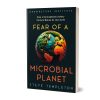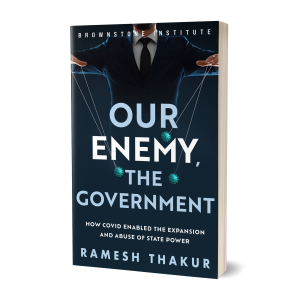Fear of a Microbial Planet, a wonderfully accessible book on the Covid era published by Brownstone institute, offers desperately needed clarity and science on the organization and management of individual social life in the presence of pathogenic infection. It can be read as a definitive answer to expert arrogance, political overreach, and population panic.
For three years following the arrival of the virus that causes Covid, the dominant response from governments and the public has been to be afraid and stay far away through any means possible. This has further mutated into a population-wide germophobia that is actually being promoted by elite opinion.
Steve Templeton, Senior Scholar at Brownstone Institute and Associate Professor of Microbiology and Immunology at Indiana University School of Medicine – Terre Haute, argues that this response is primitive, unscientific, and ultimately contrary to individual and public health.
If a public health response is like an immune response, then consider this book as immunization against germophobia, politicized science, a self-defeating safety culture, and misplaced faith in experts. Dr. Templeton is our guide to helping us gain a new and more robust understanding of the relationship between the microbial kingdom and our own lives.
Many books have been and will be written about pandemic response mistakes, and that’s a good thing. There can’t possibly be enough reflection on what went wrong, otherwise we will be doomed to follow the same path, or an even worse one, next time. This book argues that the safety-at-all-costs culture will continue to result in counterproductive policies until it is challenged at its root.
How did people in our communities and around the world get to the point of hysteria over a pandemic with a clear age-stratified and comorbidity-amplified mortality? Why were young and healthy people with very little risk for disease and death treated as if they were a grave danger to others?
It was always pointless to try to stop much less eradicate this virus. We’ve evolved with pathogens and need to learn to live with them without imposing mass psychological, social, economic, and public-health damage.
Everyone who panicked to the point of meltdown needs this book as a corrective. And even if you did not, everyone knows someone who did, public-health officials above all else.





